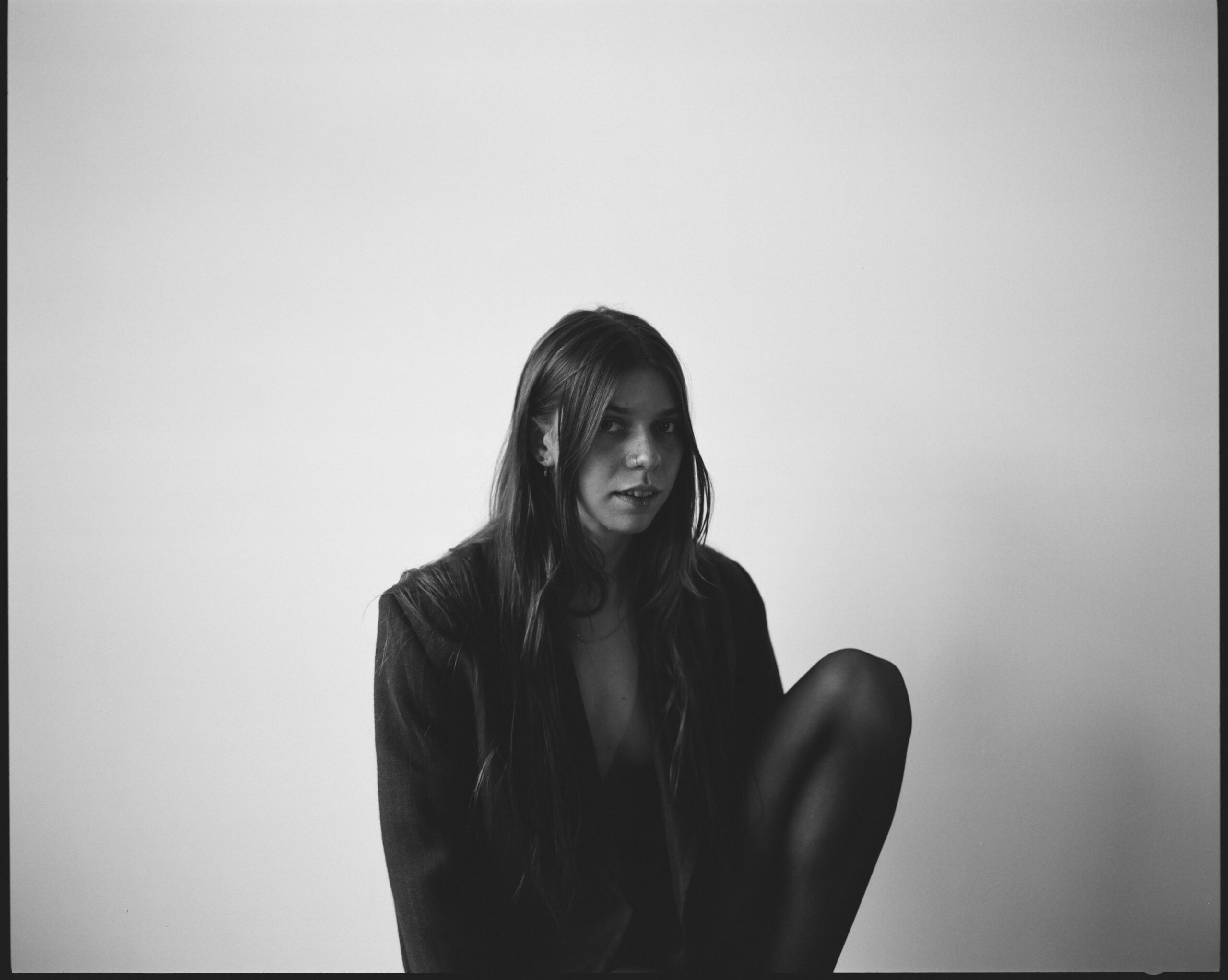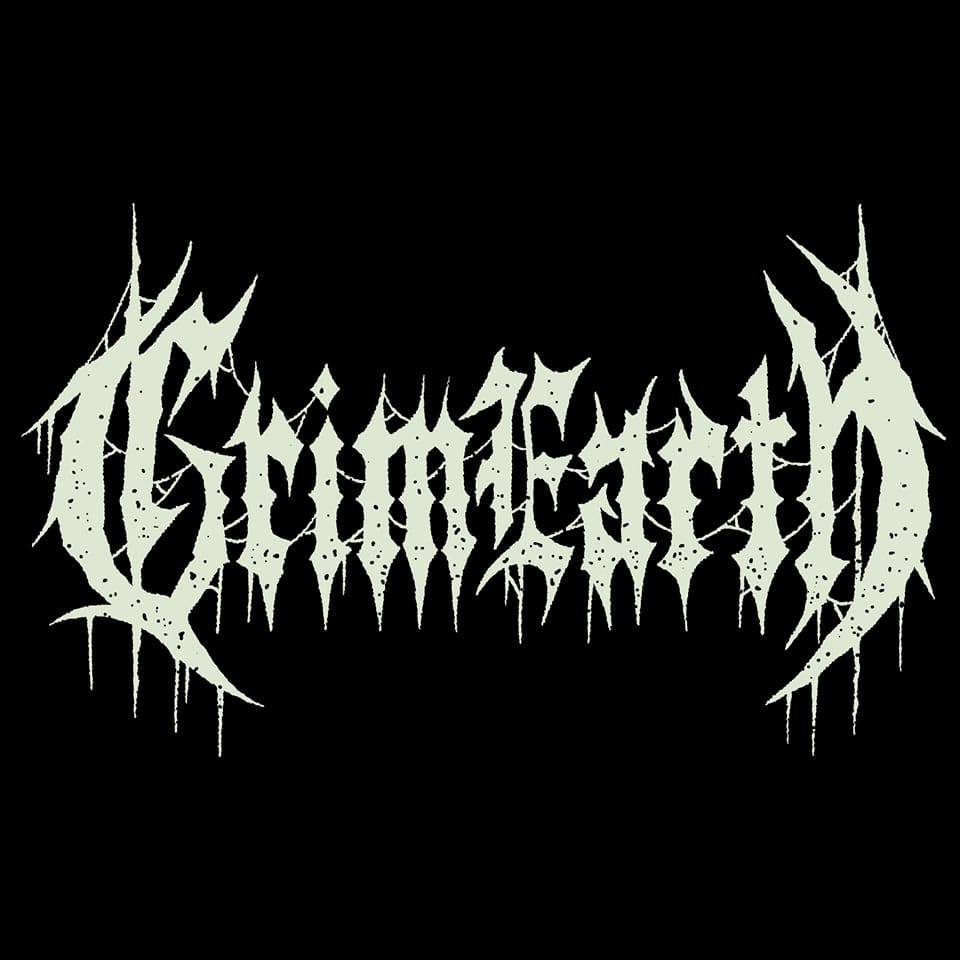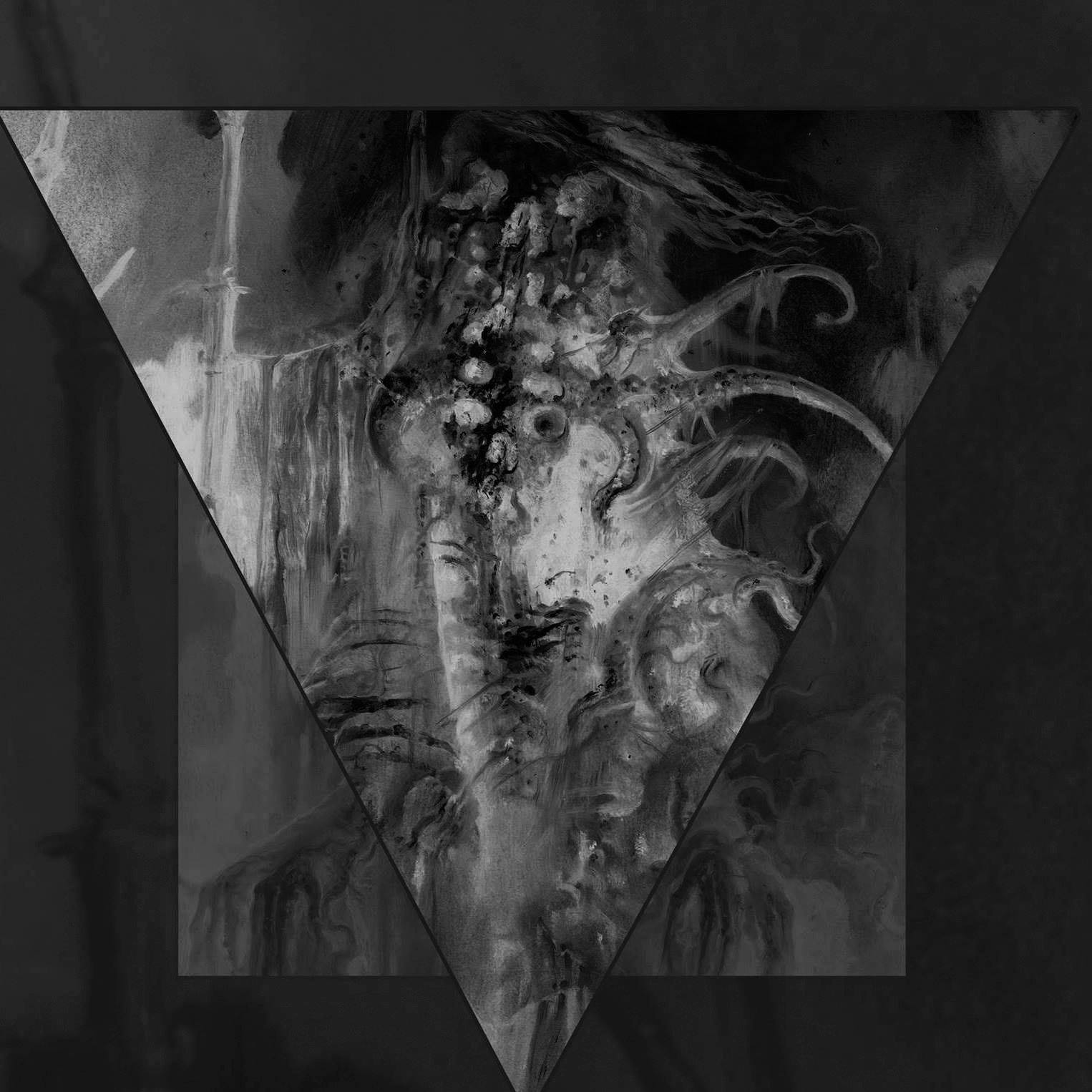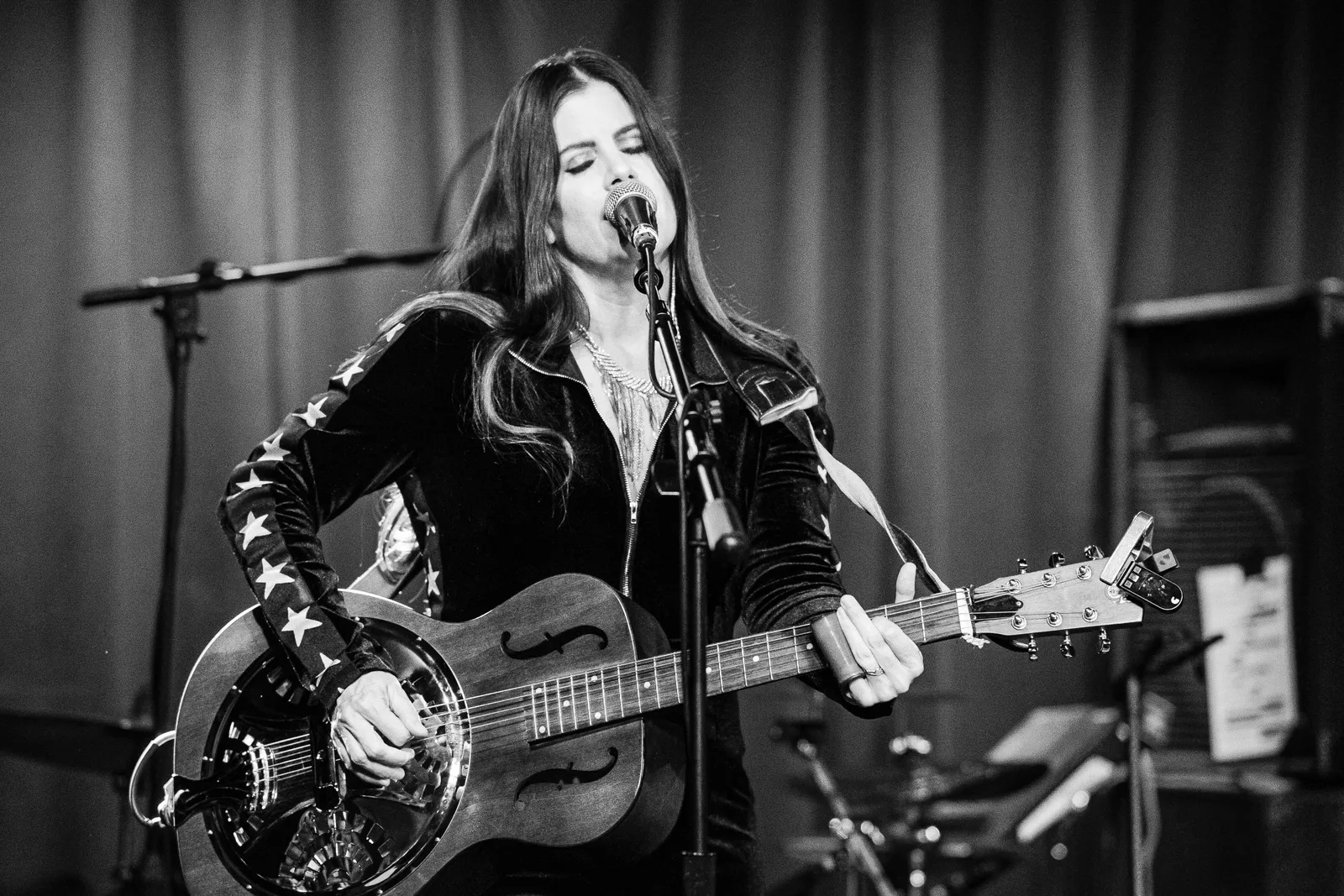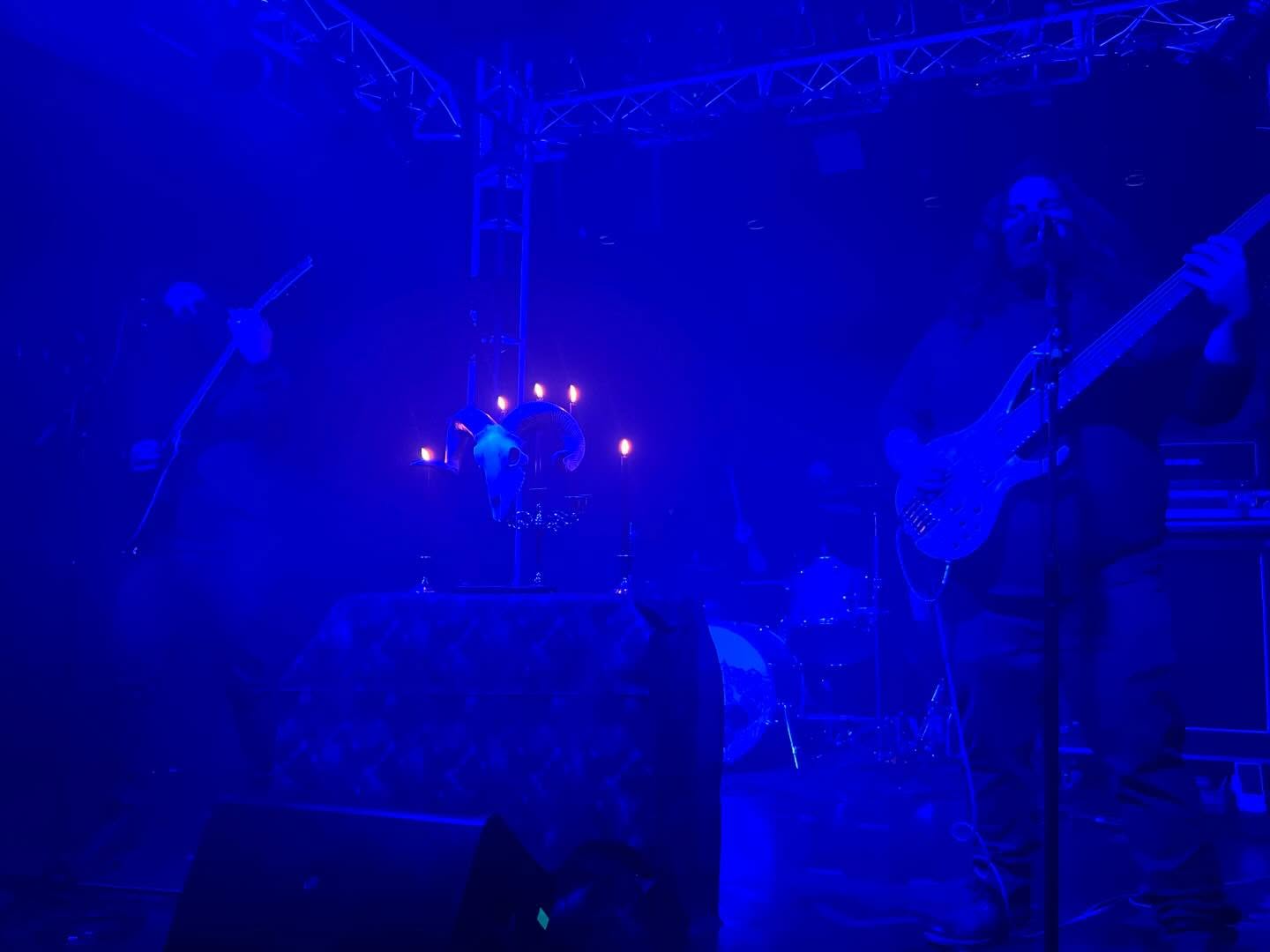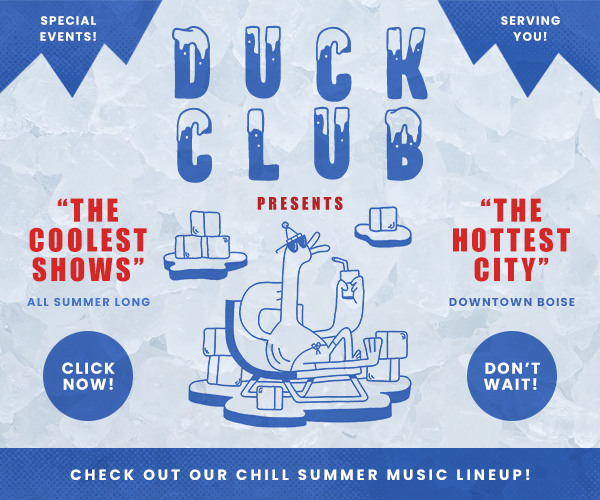
Tomberlin’s i don’t know who needs to hear this…
By Sarah Nicole Prickett
People are not doing well. People are struggling—with work, and with living together, and with loneliness. People keep calling and forgetting what they were going to say. People have a lot to grieve. People are going to love the new Tomberlin album, i don’t know who needs to hear this…, because it is all about their pain and yet is pleasant as well as interesting to listen to, resonant with the sense that in these times it’s best to be uncertain.
“The theme of the record,” she explains, “is to examine, hold space, make an altar for the feelings.” Hold space: Tomberlin’s songs do it literally, making it heard space. Her full-length debut, At Weddings (2018, Saddle Creek), was widely praised for the sparsity and delicacy of its instrumentation, especially in contrast with the emotional heft of her lyrics.
Here, the space feels larger and holier, built to echo. Pedal steel. Old acoustic guitars, freshly plucked. A drifting synthesizer. Chill, brushy percussion. Ambient, expansive clarinet and saxophone. Aleatory piano trills, a lot of piddling with the occasional splash. The looseness and wideness of the arrangements conveys a tender regard for their parts, as though each arpeggio, loop, scratch is a found shell or feather in the hand. Then there is the instrument of her voice, which has the endearing quality of being perfectly tuned but reluctantly played. “I’m not a singer,” she sings on “idkwntht.” “I’m just someone who’s guilty.”
Tomberlin is Sarah Beth Tomberlin, a pastor’s kid born in Florida, raised in rural Illinois. She wrote the majority of her debut while living at home. For a while after leaving home and church, she lived in Louisville, Kentucky. She worked a day job and kept writing songs. She posted some of these songs to Bandcamp, which led to her signing a record deal with Saddle Creek, and her debut album, At Weddings. It all happened fast: Less than a year after her first live show, she performed on Jimmy Kimmel and she ended up moving to L.A. which is where she wrote Projections (2020), her EP followup to At Weddings, though she recorded it in Philadelphia.
During the pandemic, Sarah Beth was all over the place, physically and mentally. Louisville. Los Angeles. Back home in Illinois for a bit. Brooklyn, where she’s now settled, she says. Brooklyn is also where the album was recorded, at Figure 8 studios over the course of two weeks, with producer and engineer Phil Weinrobe (who played a variety of instruments on the collection), and later mastered by Josh Bonati, also in Brooklyn.
Her process of creating songs is more akin to talk therapy than to storytelling: Often, she says, she will open a notebook to jot down a line or phrase only to find a whole song in her mouth, gleaming and intact like a triggered memory. Later she’ll decide what it means—or not. “Questions last forever,” she says. “A lot longer than answers do.”
Fittingly, much of i don’t know who needs to hear this… was recorded live. People laughed and cried and joked and dug deep into their emotional reservoirs. People followed Sarah Beth’s lead, and the crystalline songs she’d written, and they also improvised and brought themselves to the sessions. It felt more like a community gathering than a recording session—but it was efficient and specific, as the 50 ambitious minutes of i don’t know who needs to hear this… attest. And, while Stuart Bogie, Shahzad Ismaily, Cass McCombs, Gyða Valtýsdóttir, Felix Walworth, and Doug Wieselman, to name a few, each contributed a variety of sounds, even with such a large cast of players, Sarah Beth is so clearly at the center. And, importantly, it still sounds peripatetic, as are her influences: Joni Mitchell, Frank Ocean, Grouper.
“My first record, I made it without knowing I was making it,” she says. “I was writing songs to process stuff from my personal life as it was happening, and then suddenly everything was happening really fast. Record label, tour, press, all this momentum and a lot of advice about my career, which, you know, I never even expected to have. So I think when I started to write the second record, I felt a lot of pressure to make it sound collected and profound, almost like a book—chapters, a narrative, everything nicely wrapped up.” But arcs don’t really suit her. Loops do.
She is still asking what belief is worth. On “Easy,” the bruised and swelling opener, she sings about the difficulty of being loved. But that’s as close to ironic as she plans to get. Sincerity, for Tomberlin, is a way of life. “I love the people / playing songs in the park / guitars for babies / instead of people in the bars,” she says on “Tap.” When she made her debut, she was barely old enough to drink; four years later, she sounds like she’s been sober for a decade. California sober, anyway... The besotted, breathless, wordy appeal of “Wasted,” the lead single from Projections, has given way to the measured remorse of “Stoned,” a song about love’s expiration, on i don’t know… Sometimes the most meaningful thing you can say is just what happened. Like: “After the party I walked home / alone.”
The last, titular track on i don’t know who needs to hear this… is also the first song people got to hear from the album, a choice that affirms its author’s faith in the simultaneity of beginnings and endings. It sounds more like a children’s song, says Tomberlin, than like a hit. That too is intentional. Felix Walworth sings one step behind her, like they’re learning the song, not performing it. The melody is simple, irrepressible. The words—I don’t know who needs to hear this—start sounding hopeful. No advice to follow. Just vibrato. Might as well throw up your hands, think: Isn’t it funny how a gesture of resignation can be the same as a gesture of freedom? To let go is to find freedom.
A Q&A with Sarah Beth Tomberlin
By Thora Siemsen
What are your ideal listening conditions for hearing new music?
It depends on the music, but I like listening to music in the car, walking, on the train. Movement is big for me. For some reason, my brain feels more sponge-like in transit.
How do you decide on an album opener?
I’m a full album listener. I'm not that prone to listen to singles. I will if I'm really excited about something or somebody hasn't released anything in a long time. I am thinking about how I listen to music, but also how I think maybe the average music listener listens to music. Generally, I think everybody starts at the beginning. Thinking about it like the opening of a book, what's going to grab the listener, make them want to sink into it or pay attention.
“Easy” does it.
The opener sets the tone, I hope, for the rest of the record. There are touchstones, elements sonically or lyrically, that appear throughout the rest of the record.
Where did you record the album?
I recorded it in Prospect Heights, at a studio called Figure 8 Recordings.
Do you live in New York?
I do. I moved here in September of 2020. I thought I was just coming for a month. I brought my dog, Annie, a magical mutt I adopted when she was four months old. I have two roommates now, it's good. I’m actually the happiest I've ever been anywhere.
What do you like about living here?
I think the biggest thing for me is the community. Everybody's looking out for each other, everyone knows how difficult it is. I guess especially with other musicians and artists, I feel like people here are looking out for each other in a genuine way. I think I could live anywhere, but community is very important to me and I've never had as much of it as I've had in New York, and I've only been here a bit.
On “Tap” you sing, “do you think they know how good they are?” about people performing in parks and bars. How do you see touring as different from this kind of playing?
I think there's something sacrificial, both for touring musicians and also for people who are busking. In reality, none of us are making very much money most of the time. But that line came up from walking around Chelsea Piers during wintertime last year and seeing people playing songs in the park. It's freezing, but these people are all outside bundled up giving undivided attention to this person. There was something really pure about seeing people who maybe have other gigs playing for babies and their parents. People are using the thing that they love, that maybe connects them to themselves, to help other people connect themselves. I think it’s the same with touring. You're trying to connect with yourself as an artist, connect with your music and the response. You're also sacrificing them all, you're also disconnected in a way from maybe your intention.
Also from “Tap”: “always wondering if I’ll go to hell.” What does hell look like in your head?
I guess in my head it's still referring back to what I was taught, which was total separation from common grace.
I was thinking of the song “Memory.” Do you have a good memory?
Some things I'm not sure what to do with, so I tuck them away for later. And then you feel like you're exploding… Yeah, I think sometimes I have a good memory.
How often do you feel more like yourself when you're alone?
I think I feel more like myself when I'm not being perceived. Listening to music in public or something, maybe someone's paying attention to me, but I don't feel like I'm being seen or observed. I work things out in my head and I'm in there a lot. And then when I get out of it, I want to be able to communicate well and thoughtfully, from a place of centeredness, not a place of defensiveness.
There’s the song “Stoned.” What do you get stoned on?
Weed. It definitely has helped me in life and also has been a crutch at the same time. I was late to the game, I don't think I smoked until I was 21.
In “Happy Accident” you sing: “I always measure my time by the way you spend mine.” Have your feelings about wasting time changed as you’ve gotten older… Do you believe time can be wasted?
I'm always learning something at any given moment. Even if it is learning that maybe that wasn't how I wanted to spend my time, it wasn't necessarily a waste because I was learning about the things that I do want to spend my time on. I'm always trying to learn about myself or the world or how I relate to others, always trying to view everything as homework in a way.
On “Tap” and the title track, you use the parlance of being online, but both songs seem to be about being more porous and mindful IRL.
It’s realizing that the good shit comes from being alone and being still, and really not being perceived. I don't think I've ever made any good art coming off of an intense period of press or talking about myself.
Tomberlin
Jana Horn
